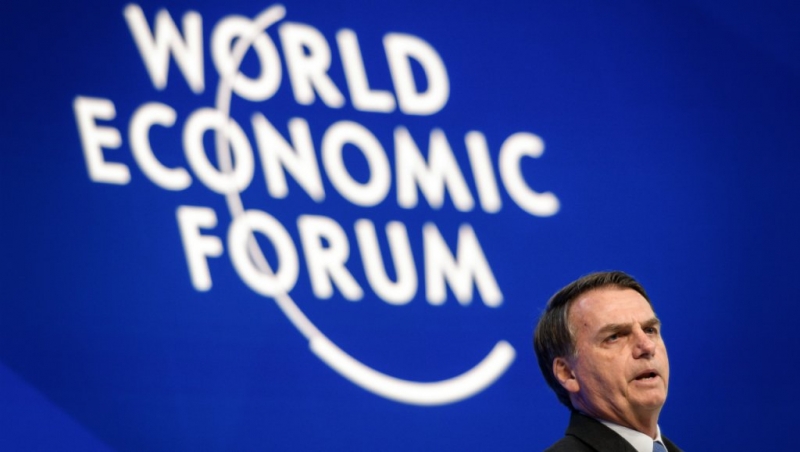Brazil economic woes hit stocks, currency
Atrophying growth forecasts and waning confidence in President Jair Bolsonaro sent Brazil’s stocks and currency to their lowest level of the year this week, as analysts warned of further falls. Since touching a record 100,000 points in mid-March, the Bovespa has fallen 10 percent and wiped out gains made since far-right Bolsonaro took power on January 1 on a promise to revive Latin America’s biggest economy.
The benchmark index closed just below 90,000 on Friday, while Brazil’s currency traded at its lowest level against the dollar in eight months, breaking through four reais. The sharp declines have been fanned by uncertainty over US-China trade talks that has pummelled stocks and currencies in emerging markets, which are perceived as riskier bets. But the “external headwinds” have been compounded by concerns over Brazil’s feeble economy, which has struggled to grow since emerging from the devastating 2015-2016 recession, said William Jackson of London-based Capital Economics.
“There was a lot of hope when Bolsonaro came to power that the economy would turnaround, but we have seen no evidence of this,” Jackson said. This week’s massive nationwide protests over education spending freezes, money laundering accusations against Bolsonaro’s eldest son and the slow pace of economic reforms were adding to the general malaise. “The economy is really flirting with recession,” Jackson added.
The bleak outlook was underscored by economy minister Paulo Guedes, who warned this week that Brazil was “at the bottom of the well” as he slashed the government’s forecast for 2019 economic growth to 1.5pc from 2.2pc. That was followed by central bank chief Roberto Campos Neto, who flagged a likely contraction in the economy in the first quarter following a slowdown at the end of 2018. Market analysts have pared their full-year growth forecasts 11 weeks in a row and now expect the economy to expand by an anemic 1.45 percent, according to the latest central bank survey. Some even saw that estimate as optimistic.
Marcos Casarin of Oxford Economics warned Brazil appeared headed for around one percent growth for the third year in a row
Related Posts

